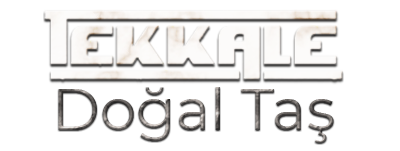Understanding the Role of an Information Blog
An information blog serves as a hub for sharing knowledge, insights, and expertise on specific topics. Whether you’re targeting niche audiences or broad demographics, an information blog thrives on delivering value through well-researched content. Unlike entertainment-focused platforms, these blogs prioritize accuracy, depth, and relevance, making them essential tools for digital marketing and audience education.
Key Features of a High-Quality Information Blog
A successful information blog combines credibility, consistency, and user-friendly design. It leverages SEO strategies to rank higher in search engines, ensuring visibility for target keywords. Quality content, regular updates, and interactive elements like comments or forums enhance online engagement. These features collectively define the difference between a passive repository and a dynamic resource.
Why Information Blogs Are Essential for Modern Audiences
In today’s fast-paced world, users seek reliable sources for answers. Information blogs fill this gap by offering structured, actionable content. They support digital marketing efforts by driving organic traffic and building brand authority. Additionally, they foster online engagement through shareable insights, creating communities around shared interests.
Top SEO Strategies for Information Blogs
Implementing effective SEO strategies is critical for an information blog’s growth. Start with keyword research to align content with user intent. Optimize meta descriptions, headers, and alt texts to improve search engine rankings. Internal linking and high-quality backlinks further strengthen SEO performance. Regularly updating content ensures long-term relevance in competitive niches.
Content Creation Tips for Engaging Readers
Content creation is the backbone of any information blog. Focus on clarity, depth, and readability. Use subheadings, bullet points, and visuals to break up text. Incorporate storytelling or case studies to make complex topics relatable. Tools like https://aviator-game-online.net/ can help streamline workflows and maintain consistency in publishing schedules.
How to Structure Your Blog Posts Effectively
A well-structured blog post guides readers from introduction to conclusion seamlessly. Begin with a compelling hook, outline key points in the introduction, and use numbered lists or sections for clarity. Conclude with a summary and call-to-action. Proper structure improves readability and supports SEO strategies by organizing content logically for both users and search engines.
Tools and Resources for Bloggers
Leverage tools like Grammarly for editing, Canva for visuals, and Google Analytics for tracking performance. SEO plugins such as Yoast or Ahrefs simplify keyword optimization. Accessing free resources like industry whitepapers or webinars enhances content creation quality. These tools streamline processes, allowing bloggers to focus on delivering value through their information blog.
Measuring Success: Analytics for Information Blogs
Tracking metrics like page views, bounce rates, and time-on-page helps evaluate an information blog’s impact. Digital marketing goals often rely on these analytics to refine strategies. Tools like Google Search Console reveal SEO performance, while social media insights highlight online engagement trends. Regular analysis ensures alignment with audience expectations and business objectives.
Common Challenges Faced by Bloggers
Bloggers often struggle with maintaining consistency, competing in saturated niches, or balancing creativity with SEO demands. Content creation can become repetitive without fresh ideas. Overcoming these challenges requires adaptability, continuous learning, and leveraging community feedback to refine an information blog’s direction.
Monetization Options for Information Blogs
Monetizing an information blog involves affiliate marketing, sponsored posts, or selling digital products. SEO strategies play a role in attracting advertisers, while high-quality content builds trust for partnerships. Subscription models or membership tiers offer recurring revenue. Diversifying income streams ensures sustainability while preserving the blog’s core mission.
Staying Updated with Industry Trends
The digital landscape evolves rapidly, requiring bloggers to stay informed about algorithm changes, emerging technologies, and audience preferences. Subscribing to newsletters, attending webinars, or joining forums keeps you ahead. Integrating new trends into content creation ensures your information blog remains relevant and competitive in digital marketing spaces.
The Importance of Consistency in Blogging
Consistency builds trust and habit among readers. A regular posting schedule reinforces your information blog’s reliability. It also supports SEO strategies by maintaining active content. Even if posts vary in length, consistent updates signal authority to search engines and encourage repeat visits from audiences seeking ongoing value.
Building a Community Around Your Blog
Fostering a community enhances online engagement and loyalty. Encourage reader interactions through comments, polls, or social media groups. Hosting Q&A sessions or live streams creates connection points. A strong community not only amplifies your information blog’s reach but also provides feedback to refine content creation efforts.
Frequently Asked Questions About Information Blogs
- How do SEO strategies impact an information blog’s visibility? SEO strategies optimize content for search engines, increasing organic traffic and discoverability.
- What makes content creation unique for information blogs? It focuses on depth, accuracy, and educational value rather than entertainment.
- Can digital marketing techniques boost online engagement? Yes, through targeted campaigns, social media promotion, and audience interaction.
Final Thoughts on Growing Your Information Blog
Growing an information blog requires dedication to quality, strategic use of SEO strategies, and a commitment to audience needs. By combining effective content creation with digital marketing tactics, you can build a sustainable platform that drives online engagement and establishes long-term authority in your niche.
